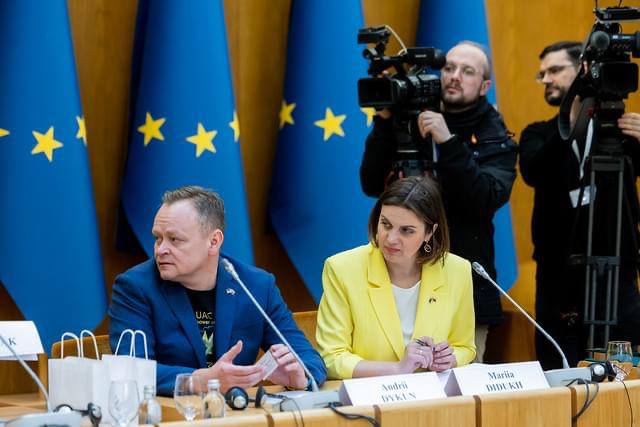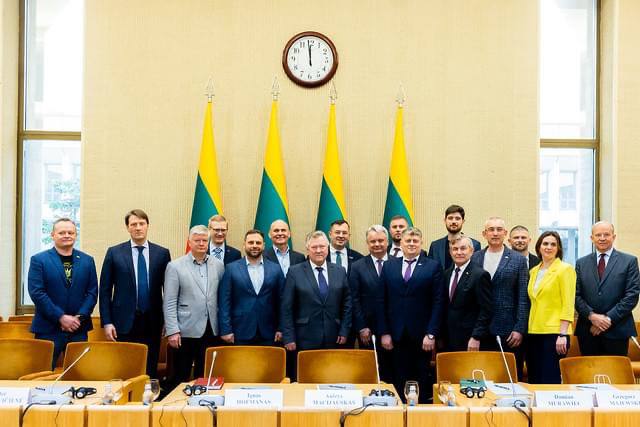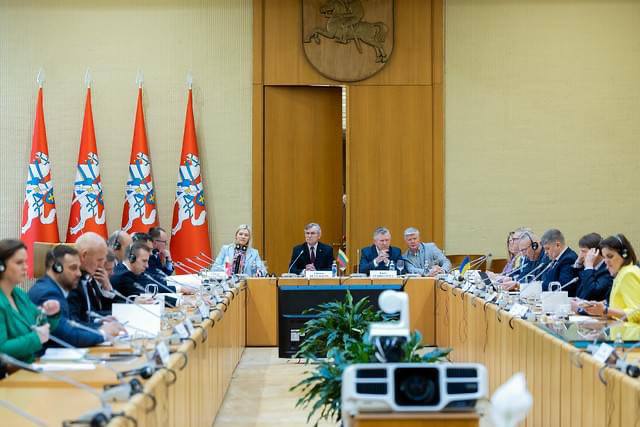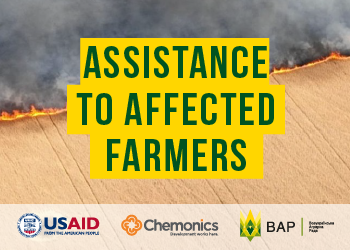The Seimas of Lithuania hosted a trilateral meeting of the parliamentary delegations of Lithuania, Poland and Ukraine with representatives of agricultural associations.
The meeting was attended by the chairmen and representatives of the Lithuanian, Polish and Ukrainian parliamentary committees on agriculture and the Seimas Economic Committee, deputy ministers of agriculture of Lithuania, Poland and Ukraine, as well as representatives of leading agricultural associations. This is the first such meeting in the history of the Seimas.
The participants discussed the ban on imports of Russian and Belarusian grains to the European Union, ways to further develop imports of Ukrainian grains to the EU, the possibility of strengthening sanctions against Russian and Belarusian food products, as well as other challenges facing the agricultural sector today, including, in particular, the fight against hostile propaganda of the Russian Federation, price dumping by the aggressor and unfair competition.

Andriy Dykun, Head of the Ukrainian Agri Council, thanked the Lithuanian partners for their comprehensive support and organization of the meeting and appealed to his Polish colleagues to unblock the Ukrainian-Polish border, explaining that the cargoes currently waiting at the checkpoints are in transit to other countries and export goods under old contracts, as well as agricultural products that do not create any competition in the Polish market, such as raspberries and honey.
"Thanks to the Armed Forces of Ukraine, we have a sea corridor, so it is much more profitable for Ukrainian agricultural producers to export by sea rather than through Poland, which is what we do. Currently, cargoes are transiting the Ukrainian-Polish border to other countries under old contracts. In February of this year, the total volume of exports of all agricultural products from Ukraine amounted to 7.3 million tons, of which 432 thousand tons went through Poland. At its peak, this figure was 797 thousand tons. Given this, it is difficult for me to explain to our farmers why there is such resistance from our Polish colleagues, because most of the agricultural products that are currently being blocked by Polish protesters were processed in Poland, which allows Polish processors and livestock farmers to earn good money. Therefore, the current blockade harms both countries. It is also a fair question why, while Ukrainian farmers suffer devastating blows to their farms and lose people, Russian grain is sold to the EU, European companies sell agricultural machinery and seeds to Russia, but block transit cargo from Ukraine or imports of products to the market that do not create pressure for European producers?" said Andriy Dykun.
The members of the Ukrainian delegation presented analysis on the reduction of agricultural transit through Polish territory, noting that in the coming months Ukrainian transit will decrease to the level of 250-300 thousand tons per month, as it was before the full-scale invasion of Russia. The Ukrainian side also emphasized the need for the European Parliament to adopt a decision to restrict imports and transit from Belarus and Russia, which in turn would reduce pressure on the Polish market.
"We share the concerns of Polish farmers and understand the difficult situation they are in. We want to maintain our friendly relations and, since we are neighbors, bilateral trade ties. Ukraine and Poland should make every effort to jointly ensure food security in the world," said Maria Didukh, director of the All-Ukrainian Agrarian Forum.
Representatives of the three countries agreed that a ban on imports and transit of Russian grain would be one of the most effective measures to solve the problem.
"Farmers of both countries are in a difficult situation, but it is most difficult for Ukrainian farmers who have lost their farms or whose enterprises are located in the occupied territories and whose crops the enemy exports to the EU as their own," said Ivan Chaikivsky, Secretary of the Verkhovna Rada Committee on Agrarian and Land Policy.

The participants of the meeting worked out five important points for a joint declaration, which will include a complete ban on the transit and import of Russian and Belarusian food products to the EU and intervention purchases of Ukrainian agricultural products to stabilize prices on the market.
"We should focus on a joint assistance package for Ukraine to restore the markets that Ukraine had before the war. We hope that the format of the Lublin Triangle will strengthen the strategic partnership between Lithuania, Poland and Ukraine, promote mutually beneficial trade and regional cooperation, as well as jointly overcome emerging challenges," summarized Kazys Starkevičius, Chairman of the Seimas Economic Affairs Committee.
The Ukrainian Agri Council is grateful to the Lithuanian partners for their support and comprehensive assistance in resolving the Ukrainian-Polish issue, and to the Polish partners for their willingness to hear all the arguments and contribute to maintaining global food security and continuing mutually beneficial bilateral trade relations.
The next meeting in the same format is scheduled for Ukraine.
Tuesday, 9 April 2024
